nsa
Latest
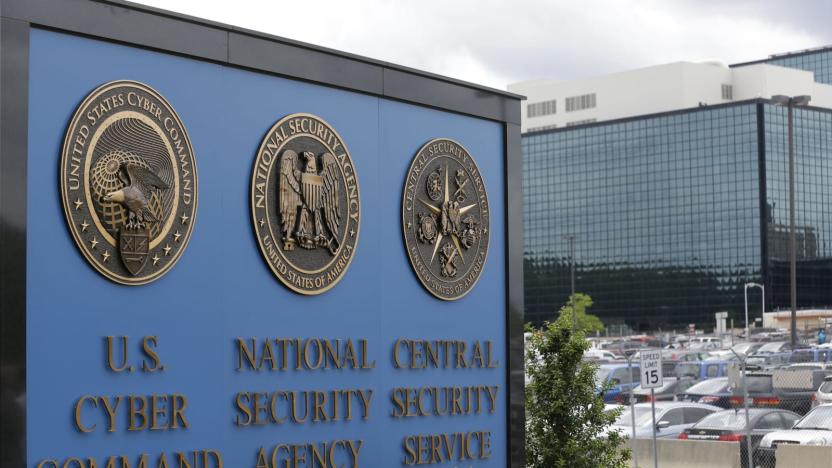
Edward Snowden suspects NSA hack was a Russian warning
The National Security Agency (and the US itself) may have just received a shot across the bow. Hackers identifying as the Shadow Brokers claim to have breached the Equation Group, a hacking outfit widely linked to NSA activities, and the data they've posted leads Edward Snowden to suspect that it might have been a state-sponsored Russian operation. If the intruders really did publish the spoils of a NSA cyberweapon staging server as they say, it'd suggest that someone wanted to show that they can prove US involvement in any attacks that came from the server.

Report reveals identity of NSA and PRISM surveillance target
It's been over three years since former NSA contractor Edward Snowden released a trove of documents detailing the extent to which the American government was able to spy on its citizens. A big part of those revelations was PRISM, a system that allowed the government to expediently request and collect data from a variety of huge internet companies including Facebook, Apple, Google, Microsoft and more. Today, a new report from The Intercept contains details on the first person to be identified as a target of PRISM.

US reportedly elevates the role of Cyber Command
Now that the US treats cyberwarfare as a staple of its combat operations, it's ready to raise the prominence of its internet warriors. Reuters sources say that the Obama administration is planning to elevate Cyber Command, turning it into a "unified command" that's just as crucial as a major regional section like Pacific Command. The proposed shuffle would also detach Cyber Command from the NSA, giving it more input on the use of online weapons and defenses.

Edward Snowden designed an iPhone case to prevent wireless snooping
Edward Snowden is still trying to combat smartphone radio surveillance three years after spilling the NSA's secrets. With help from hacker Andrew "Bunnie" Huang, Snowden presented on Thursday designs at the MIT Media Lab for a case-like add-on device that monitors electrical signals sent to an iPhone's internal antennas.
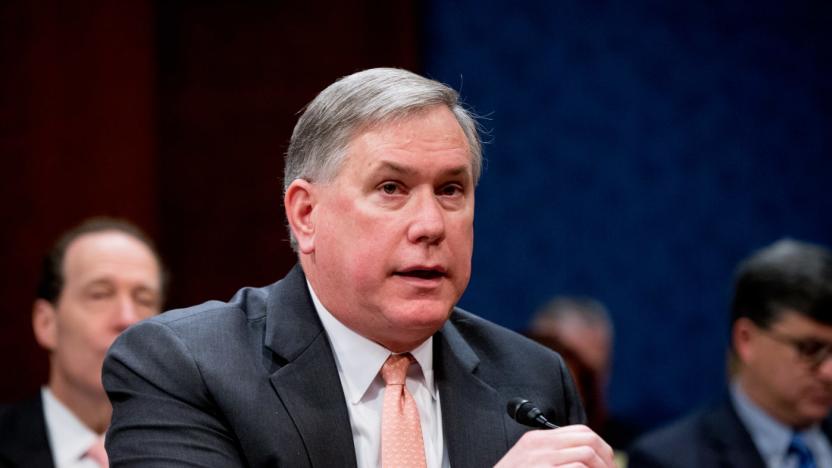
The NSA wants to spy on the Internet of Things
We already know the National Security Agency is all up in our data, but the agency is reportedly looking into how it can gather even more foreign intelligence information from internet-connected devices ranging from thermostats to pacemakers. Speaking at a military technology conference in Washington D.C. on Friday, NSA deputy director Richard Ledgett said the agency is "looking at it sort of theoretically from a research point of view right now." The Intercept reports Ledgett was quick to point out that there are easier ways to keep track of terrorists and spies than to tap into any medical devices they might have, but did confirm that it was an area of interest.

ICYMI: Cellphone motor as mic and fuel from sunlight
try{document.getElementById("aol-cms-player-1").style.display="none";}catch(e){}Today on In Case You Missed It: Researchers created a hack that lets a smartphone's vibration motor act as a microphone, picking up conversations unbeknownst to the user. Harvard University folk created fuel using artificial photosynthesis that is triple as effective as previous systems, making gas out of sunlight, CO2 and water. And finally, YouTube user BOOM LLC Robotater has a pretty entertaining potato video on the site; if you're looking for the case that lets you switch an iPhone to Android, that's here. As always, please share any great tech or science videos you find by using the #ICYMI hashtag on Twitter for @mskerryd.

Snowden did more to raise NSA concerns than officials claimed
For the longest time, US officials denied that Edward Snowden made serious attempts to raise concerns about NSA surveillance activities before he took off with classified data. There was only evidence of one not-so-worrisome email, they said. However, it's now clear that this isn't the whole story. Documents obtained by Vice News (and published by the NSA) show that Snowden likely did more to raise concerns with the NSA than officials claimed. While there's no smoking gun, two out of three previously unmentioned Snowden interactions with the Oversight and Compliance Office involved disputes over an open-book test on foreign intelligence gathering. The findings suggest that Snowden might have disagreed with the test's interpretation of the law, which would be in sync with the previously released email.

Yahoo releases content of three FBI data requests to public
Today, Yahoo made minor history by becoming the first company to publicly confirm that it has been issued National Security Letters (NSLs) from the FBI. It sounds like a simple story, but it's actually a huge win for transparency: until recently, gag orders kept companies like Yahoo from acknowledging NSLs in all but the vaguest of terms. Now, thanks to the USA Freedom Act, the company is able to divulge the contents of three FBI data requests made since 2013.

The Intercept is opening up access to the Snowden archive
Nearly three years after Edward Snowden first exposed the NSA's PRISM electronic data mining program, and his trusted journalist partners are finally ready to bring even more of those documents out into the open. Today, The Intercept announced two initiatives to further that goal: First, the site is releasing a cache of internal NSA documents that it believes will point other journalists towards noteworthy stories. And second, The Intercept will partner with other national and international media outlets to allow access to the sensitive documents in its possession.
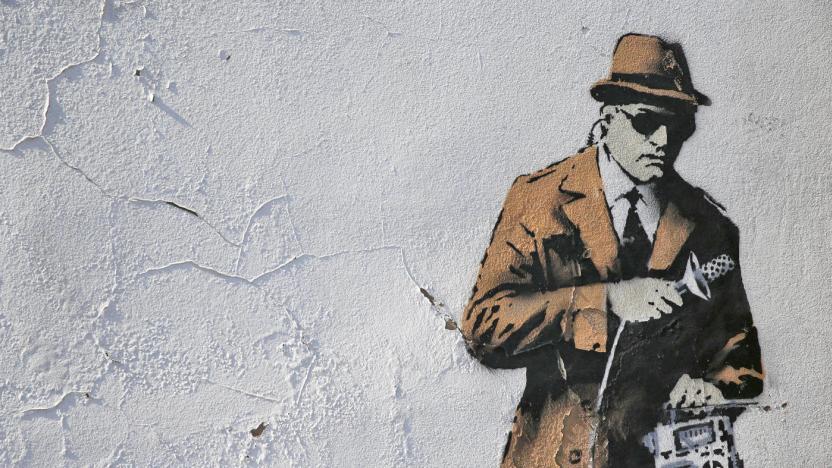
CIA and NSA doubled their searches for Americans' data in 2 years
So much for US intelligence scaling back its curiosity in the wake of Edward Snowden's leaks. An Office of the Director of National Intelligence transparency report has revealed that the CIA and NSA doubled the number of searches for the content of Americans' communications in an NSA database between 2013 and 2015. Where the two agencies made about 2,100 such requests three years ago, they searched 4,672 times last year. Just what triggered the spike isn't clear. There's a chance that some of the increase comes from repetitive searches (that is, running similar queries more than once), but they were also factors in 2013 -- the odds are that activity went up.

US surveillance court didn't reject a single spy order last year
For years, critics have claimed that the US' Foreign Intelligence Surveillance Court is a pushover: it's allegedly so reluctant to reject spying orders that it's little more than a speed bump for the FBI and NSA. True or not, that reputation isn't about to change any time soon. Reuters has obtained a Justice Department memo showing that FISC didn't reject any of the 1,457 surveillance order requests it received in 2015, even in part. That's no different than in 2014, but it suggests that the court isn't any less forgiving in an era of tighter government controls.
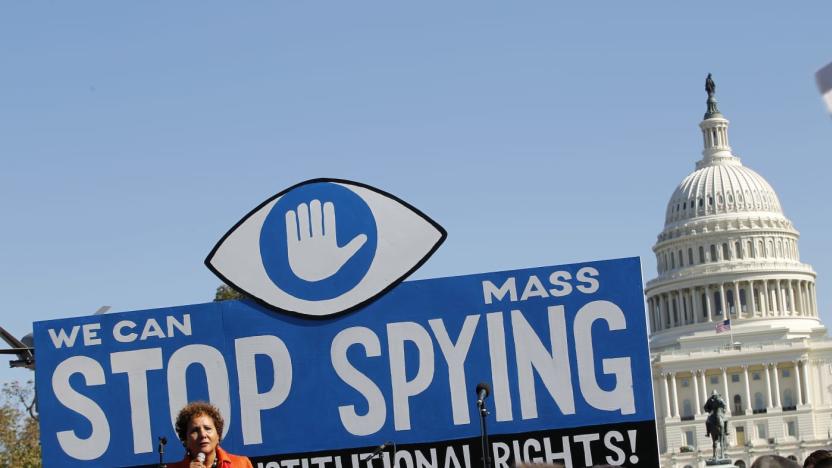
Congress asks the NSA how often it spies on Americans
Thanks in part to leaks, it's no secret that the National Security Agency's foreign intelligence gathering also covers some Americans. But just how many Americans are under watch, and how many are simply innocents caught in the crossfire? Congress wants to find out. The House Judiciary Committee has sent a letter giving Director of National Intelligence James Clapper until May 6th to provide a "rough estimate" of how many Americans are swept up in spying under the Foreign Intelligence Surveillance Act. While the NSA is supposed to keep the collection of US data to a minimum, it's not clear that the current approach is effective. There's a concern that many people are unnecessarily included, opening the door to abuse.
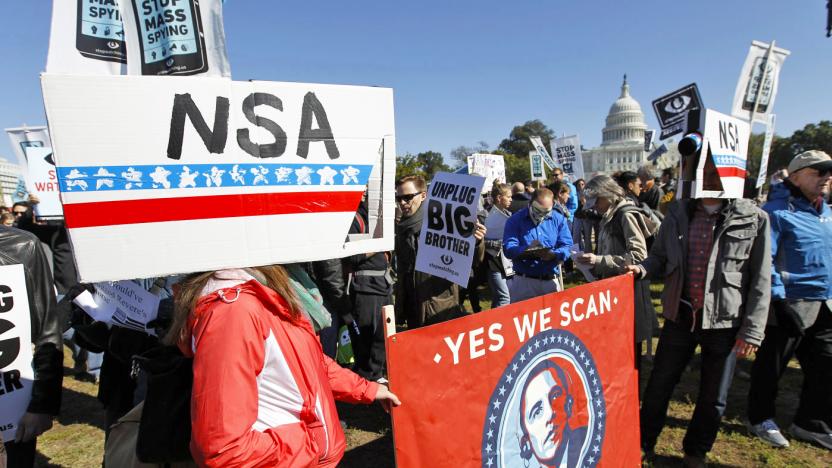
FBI confirms new rules for accessing Americans' NSA spying data
Score one for privacy... I guess? The FBI has confirmed to The Guardian that it's accepted new privacy rules for accessing data on American citizens collected by the NSA. The only rub? We don't know what the heck has been changed. In fact, the agency won't even say when the new rules took affect. All we know is that the government watchdog group PCLOB (the Privacy and Civil Liberties Oversight Group) noted the change in its most recent compliance report. Specifically, the group says the Obama administration has introduced "revised FBI minimization procedures" that take into account its earlier privacy concerns about how the agency accesses surveillance data.
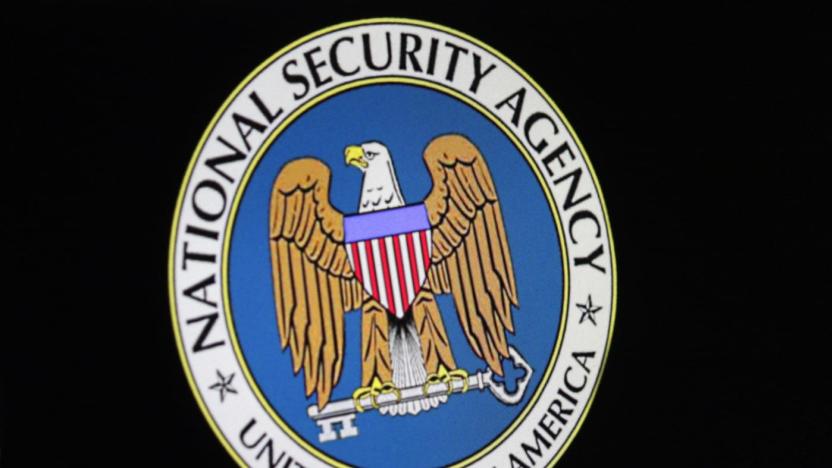
EFF scores a blow against the government's domestic spying
Before we knew that the National Security Agency was getting its jollies by spying via Prism, there was Jewel vs. NSA. That case, filed by Electronic Frontier Foundation, has gotten a boost from California judge Jeffrey White who's has granted discovery to the EFF -- something the EFF says it's been barred from since 2008. Not up on your legalese? Don't worry. Discovery is the step in a court case that allows all parties involved to go into trial with as much information as possible, without either party being able to keep secrets from one another. Unless said information would result in self-incrimination, it's a fact-finding stage.

NSA will unite divisions to better tackle online threats
The US' National Security Agency isn't as united as it looks at first glance. Its intelligence gathering division (the one that conducts mass surveillance and hacking) and cyberdefense groups are largely separate. And that creates real problems -- among other issues, the intel group might be exploiting security flaws that the defensive team doesn't even know about, leaving critical systems open to attack. Those walls are about to come down, however. The NSA is poised to unveil a reorganization that will merge its offensive and defensive capabilities, helping them coordinate the fight against digital threats.

Zero-day exploits aren't as important to the NSA as you think
The head of the National Security Agency's elite hacking arm, Tailored Access Operations, downplayed the importance of zero-day exploits during a talk at USENIX Enigma 2016 in San Francisco this week, as spotted by Vice. Zero-day security holes are secret (and usually short-lived) software vulnerabilities -- the vendor doesn't know about them (until it does). According to TAO chief Rob Joyce, zero-day exploits are a small part of the NSA's hacking agenda.

US, UK intelligence agencies cracked Israeli drone data
The National Security Agency and the UK's Government Communication Headquarters have been hacking into Israeli drones to observe military operations and areas of interest in the Middle East, according to The Intercept. "Anarchist," as the program was called, saw technicians at a GCHQ facility in Cyprus routinely intercept video feeds over the course of several years, with some of the most telling bits winding up among the documents leaked by Edward Snowden.

Congress to investigate US involvement in Juniper's backdoor
Congress announced plans on Friday to investigate the backdoor recently found in Juniper Networks software and whether it was intentionally placed there for the National Security Agency's benefit. The investigation is being led by the House Committee on Oversight and Government Reform, which has already sent more than two dozen letters to various agencies asking for documentation regarding their use of Juniper's ScreenOS software. The company announced in December that ScreenOS had been compromised using a technique that has widely been attributed to the NSA.

NSA director: 'Encryption is foundational to the future'
While the US government continues to argue the pros and cons of encryption, one official is actually defending the practice. NSA director Admiral Mike Rogers said Thursday encryption is "foundational to the future," and that we're wasting our time debating its use. Rather than arguing whether or not encryption should be commonplace, Rogers suggests it's not time to sacrifice privacy for security. Instead, there has to be a solution that tackles both, which will be a lot easier said than done.
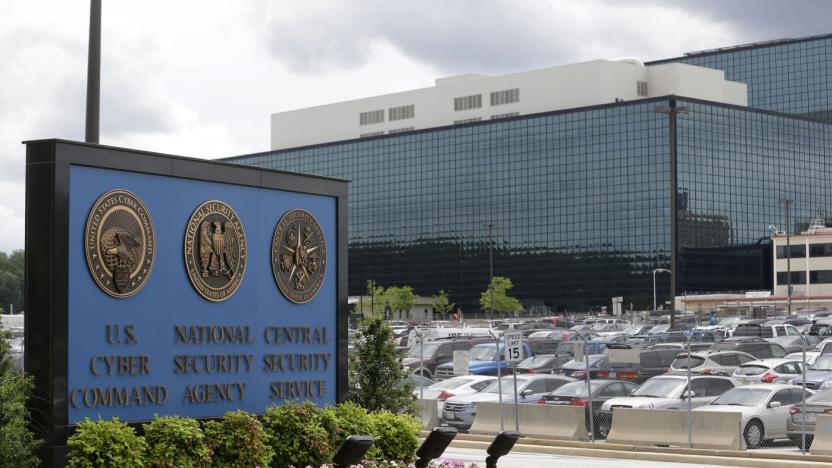
The NSA releases its first transparency report under the US Freedom Act
Back in June, President Obama signed the USA Freedom Act into law. The bill finally put limitations on the NSA's ability to bulk collect telephone data under the controversial section 215 of the Patriot Act. As part of the new bill, the NSA was compelled to release a transparency report detailing if it was meeting the privacy standards enacted by the Freedom Act. Today, the agency has published its first report, conducted by the NSA's Civil Liberties and Privacy Office (CLPO).










